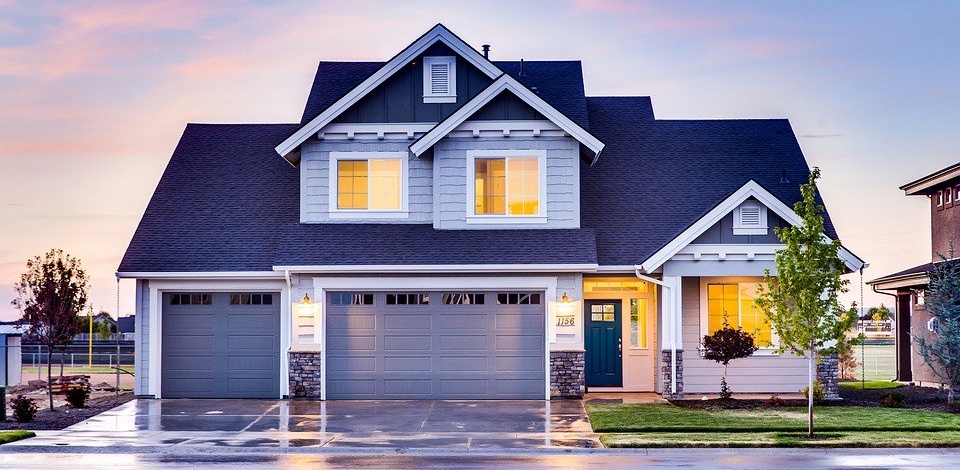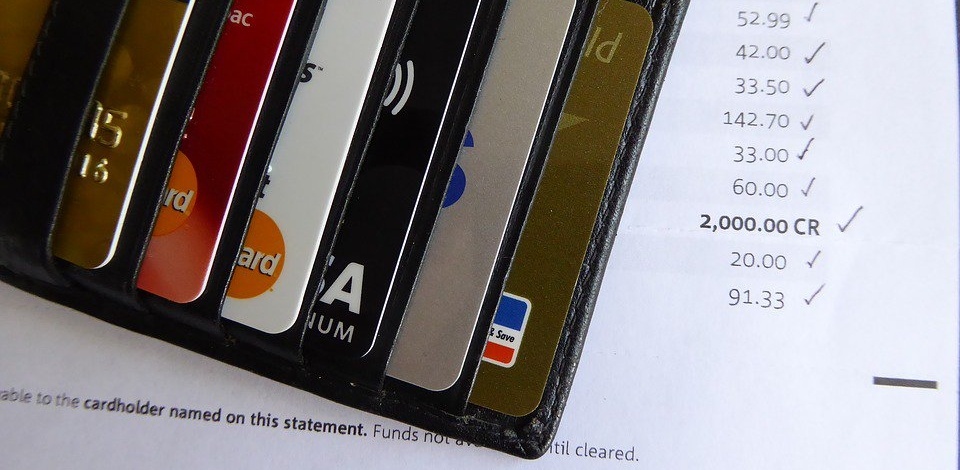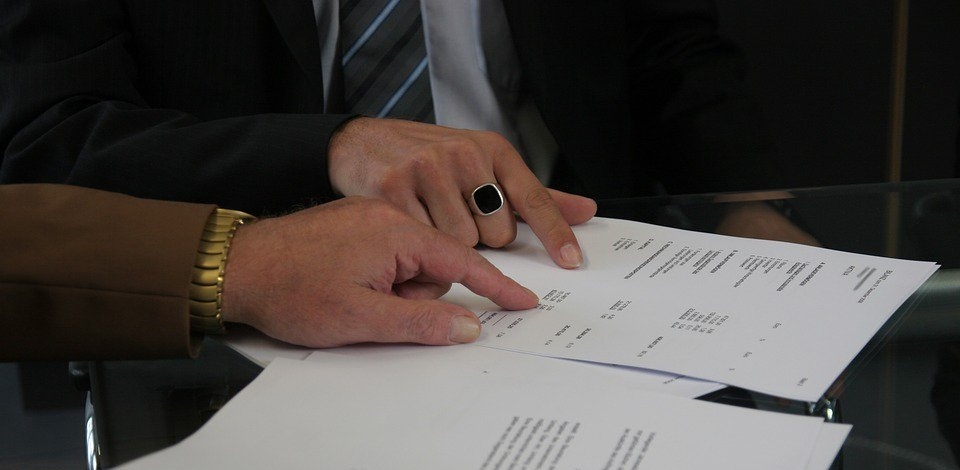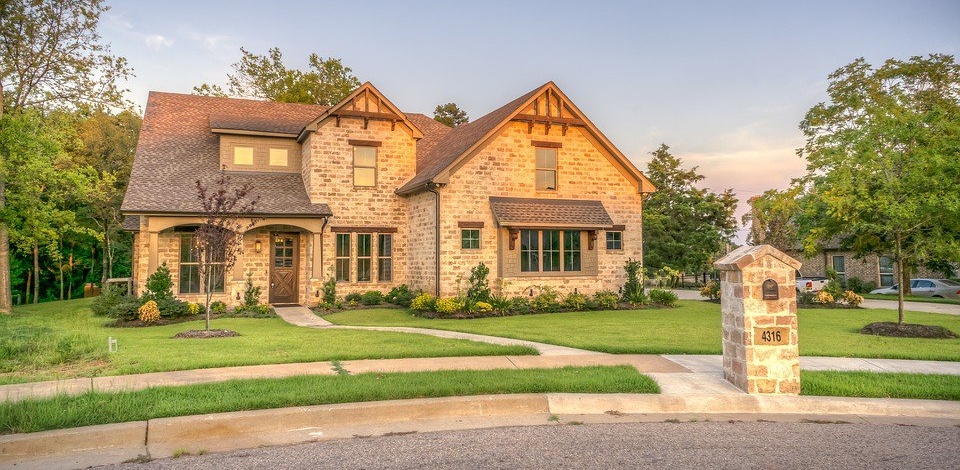If you've been thinking about buying or building a home in the Greater Rochester area, read our Home Buyers Guide now!
History has taught us that real estate is an excellent investment. But, in our opinion (and the opinion of many financial experts), now is the best time in the last fifty years to purchase a new home - Interest rates are at near all-time lows, inventory is plentiful, and numerous mortgage options are available for buyers with good credit. It also makes smart financial sense, with benefits like tax deductions for interest and closing costs on home equity loans.
For starters, why would you settle for someone else’s dream when you can own your own dream! A new home offers flexibility to meet your lifestyle. In addition to the energy efficiency that comes with a new home, your new home will provide you with peace of mind knowing that your home comes with a new home warranty which means you won’t incur costly repairs or time-consuming renovations.
The one advantage of renting is being generally free of most maintenance responsibilities. But by renting, you lose the chance to build equity, take advantage of tax benefits, and protect yourself against rent increases. Also, you typically aren’t free to decorate without permission and may be at the mercy of the landlord for housing. Owning a home has many benefits. When you make a mortgage payment, you are building equity. And that's an investment. Owning a home also qualifies you for tax breaks that assist you in dealing with your new financial responsibilities like insurance, and property taxes, and upkeep.

According to the FHA, monthly mortgage payments should be no more than 29% of gross income, while the mortgage payment, combined with non-housing expenses, should total no more than 41% of income. The lender also considers cash available for down payment and closing costs, credit history, etc. when determining your maximum loan amount.
While, it’s not necessary, it is helpful. Pre-qualifying helps you determine how much home you can comfortably afford. If you are not already working with a lender, our onsite sales professionals can direct you to a lender who can help you pre-qualify and help you find the mortgage program that best fits your personal needs.
The total amount of the previous year's property taxes is usually included in the listing information. If it's not, ask the seller for a tax receipt or contact the local assessor's office. Tax rates can change from year to year, so these figures may be approximate.
Keep in mind that your mortgage interest and real estate taxes will be deductible off your federal income tax. A qualified real estate professional can give you more details on other tax benefits and liabilities.
Yes. A paid homeowner's insurance policy (or a paid receipt for one) is required at closing. Involve your insurance agent early in the home buying process early as they are a great resource for information on home safety and can give tips on how to keep insurance premiums low.
Earnest money is money put down to demonstrate your seriousness about purchasing a home. While many new home builders typically require 1 - 5% of the purchase price, Gerber Homes simply requires as low as $500.00 earnest money for many our new homes in Greater Rochester.

Generally speaking, a mortgage is a loan obtained to purchase real estate. The "mortgage" itself is a lien (a legal claim) on the home or property that secures the promise to pay the debt. All mortgages have two features in common: principal and interest.
The loan to value ratio is the amount of money you borrow compared with the price or appraised value of the home you are purchasing. Each loan has a specific LTV limit. For example: With a 95% LTV loan on a home priced at $50,000, you could borrow up to $47,500 (95% of $50,000), and would have to pay $2,500 as a down payment. The LTV ratio reflects the amount of equity borrowers have in their homes. The higher the LTV the less cash home buyers are required to pay out of their own funds. So, to protect lenders against potential loss in case of default, higher LTV loans (80% or more) usually require a mortgage insurance policy.
Fixed Rate Mortgages most typically come in 15-year and 30-year options and offer peace-of-mind, as housing costs remain unaffected by interest rate changes and inflation. Payments remain the same for the entire life of the loan.
30 year loan: In the first 23 years of the loan, more interest is paid off than principal, meaning larger tax deductions. As inflation and costs of living increase, mortgage payments become a smaller part of overall expenses. 15 year loan: While monthly payments are higher, the loan is usually made at a lower interest rate. Adjustable Rate Mortgages (ARMS): ARM mortgages such as a Balloon Mortgage, offer very low rates and lower monthly payments for an initial period of time (usually 5, 7, or 10 years) but when time has elapsed, the balance is due or refinanced. While an ARM mortgage may allow borrowers to qualify for a larger loan amount, after the initial period, payments will increase or decrease on a regular schedule with changes in interest rates.
An ARM may make sense if you are confident that your income will increase steadily over the years or if you anticipate a move in the near future and aren't concerned about potential increases in interest rates.
Yes. By sending in extra money each month or making an extra payment at the end of the year, you can accelerate the process of paying off the loan. Be sure to indicate that the excess payment is to be applied to the principal. Most lenders allow loan prepayment, though you may have to pay a prepayment penalty to do so. Ask your lender for details.

There are several affordable mortgage options that can help first-time home buyers overcome obstacles that made purchasing a home difficult in the past. Consult with your lender for details on affordable home ownership options.
There are mortgage options available that only require a down payment of 5% or less of the purchase price. But the larger the down payment, the less you have to borrow, and the more equity you'll have. Mortgages with less than a 20% down payment generally require a mortgage insurance policy to secure the loan.
While this varies by type of loan, the monthly mortgage payment generally pays off principal and interest. But most lenders also include local real estate taxes, homeowner's insurance, and mortgage insurance (if applicable).
The amount of the down payment, the size of the mortgage loan, the interest rate, the length of the repayment term and payment schedule will all affect the size of your mortgage payment.
A lower interest rate allows you to borrow more money than a high rate with the same monthly payment. Interest rates can fluctuate as you shop for a loan, so ask-lenders if they offer a rate "lock-in" which guarantees a specific interest rate for a certain period of time. Remember that a lender must disclose the Annual Percentage Rate (APR) of a loan to you. The APR shows the cost of a mortgage loan by expressing it in terms of a yearly interest rate. It is generally higher than the interest rate because it also includes the cost of points, mortgage insurance, and other fees included in the loan.
Discount points allow you to lower your interest rate. They are essentially prepaid interest, with each point equaling 1% of the total loan amount. Generally, for each point paid on a 30-year mortgage, the interest rate is reduced by 1/8 (or.125) of a percentage point. With today’s extremely low interest rates, ask lenders for an interest rate with 0 points and then see how much the rate decreases with each point paid.

Established and managed by your lender, an escrow account is a place to set aside a portion of your monthly mortgage payment to cover annual charges for homeowner's insurance, mortgage insurance (if applicable), and property taxes.
The first step in securing a loan is to complete a loan application. To do so, you'll need the following information:
During the application process, the lender will order a report on your credit history and a professional appraisal of the property you want to purchase. The application process typically takes between 1-6 weeks.
Pre-qualification is an informal way to see how much you may be able to borrow. You can be 'pre-qualified' over the phone with no paperwork by telling a lender your income, your
There are three major credit reporting companies: Equifax, Experian, and Trans Union. Obtaining your credit report is as easy as calling and requesting one. Once you receive the report, it's important to verify its accuracy. Contact the reporting companies at the numbers listed for more information:
Experian 1-888-397-3742
Equifax 1-800-685-1111
Trans Union 1-800-916-8800
Simple mistakes are easily corrected by writing to the reporting company, pointing out the error, and providing proof of the mistake. You can also request to have your own comments added to explain problems. For example, if you made a payment late due to illness, explain that for the record. Lenders are usually understanding about legitimate problems.

A FICO Score is a number, based upon your credit history that lenders use to determine your ability to qualify for a mortgage loan. The better your score, the better your interest rate and chances of getting a loan. Ask your lender for details.
While this varies from builder to builder and lender to lender, a loan application fee is typically required to cover the costs of underwriting the loan. This fee pays for the home appraisal, a copy of your credit report, and any additional charges that may be necessary. The application fee is generally non-refundable, so read the fine print.
RESPA stands for Real Estate Settlement Procedures Act. It requires lenders to disclose information (about all closing costs, lender servicing and escrow account practices, and business relationships between closing service providers and other parties to the transaction) to potential customers throughout the mortgage process.
It's an estimate that lists all fees paid before closing, all closing costs, and any escrow costs you will encounter when purchasing a home. The lender must supply it within three days of your application.
While closing costs may vary based on location, they are usually made up of:

An agency within HUD, the Federal Housing Administration was established in 1934 to advance opportunities for Americans to own homes. By providing private lenders with mortgage insurance, the FHA gives them the security they need to lend to first-time buyers who might not be able to qualify for conventional loans.
The FHA works to make home ownership a possibility for more Americans. With the FHA, you don't need perfect credit or a high-paying job to qualify for a loan. The FHA also makes loans more accessible by requiring smaller down payments than conventional loans. In fact, an FHA down payment could be as little as a few months rent and your monthly payments may not be much more than rent.
Anyone who meets the credit requirements can afford the mortgage payments and cash investment, and who plans to use the mortgaged property as a primary residence may apply for an FHA-insured loan.
FHA loan limits vary throughout the country. Because these maximums are linked to the conforming loan limit and average area home prices, FHA loan limits are periodically subject to change. Ask your lender for details and confirmation of current limits.
There is no minimum income requirement. But you must prove steady income for at least three years, and demonstrate that you've consistently paid your bills on time.
Seasonal pay, child support, retirement pension payments, unemployment compensation, VA benefits, military pay, Social Security income, alimony, and rent paid by family all qualify as income sources. Part-time pay, overtime, and bonus pay also count as long as they are steady. Special savings plans-such as those set up by a church or community association - qualify, too. Income type is not as important as income steadiness with the FHA.
Yes. Short-term debt doesn't count as long as it can be paid off within 10 months. And some regular expenses, like childcare costs, are not considered debt. Talk to your lender about debt-to-income ratio.

You must have a down payment of at least 3% of the purchase price of the home.
Besides your own funds, you may use cash gifts (with a gift letter) or money from a private savings club. WHAT IS PMI? Private Mortgage Insurance (PMI) is extra insurance that lenders require from most home buyers who obtain loans that are more than 80 percent of their new home's value. In other words, buyers with less than a 20 percent down payment are normally required to pay PMI. PMI protects a lender against loss if a borrower defaults on a loan and by enabling borrowers with less cash to have greater access to home ownership. With this type of insurance, it is possible for you to buy a home with as little as a 3 percent to 5 percent down payment. This means that you can buy a home sooner without waiting years to accumulate a large down payment.
The Energy Efficient Mortgage allows a home buyer to save future money on utility bills. This is done by financing the cost of adding energy-efficiency features to a new or existing home as part of an FHA-insured home purchase. Basic guidelines for EEMs are as follows: - The cost of improvements must be determined by a Home Energy Rating System or by an energy consultant. This cost must be less than the anticipated savings from the improvements. - One- and two-unit new or existing homes are eligible; condos are not. The improvements financed may be 5% of property value or $4,000, whichever is greater. The total must fall within the FHA loan limit.
A VA mortgage provides housing and mortgage assistance for veterans and their families. Eligibility for the VA loan is defined as Veterans who served on active duty and have a discharge other than dishonorable after a minimum of 90 days of service during wartime or a minimum of 181 continuous days during peacetime. There is a two-year requirement if the veteran enlisted and began service after September 7, 1980 or was an officer and began service after October 16, 1981. There is a six-year requirement for National guards and reservists with certain criteria and there are specific rules concerning the eligibility of surviving spouses. A significant advantage of a VA mortgage is the elimination of a down payment, however, a VA funding fee is required. Currently 2.15% is required on no down payment loans for a first-time use. The funding fee for second time users who
Do you still have questions about buying a new home? Contact us today and we'll be happy to assist you!